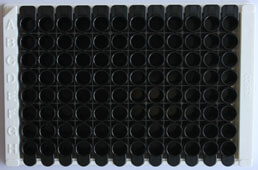Packages (Simulation)

Reagent Preparation

Image (I)
Certificate


CLIA Kit for Chemokine (C-X-C motif) ligand 7 ( CXCL7)
CXCL7; PPBP; PBP; B-TG1; CTAP-III; CTAP3; CTAPIII; LA-PF4; LDGF; MDGF; NAP2; SCYB7; TC1; TC2; TGB1; THBGB1; Pro-Platelet Basic Protein; Beta-Thromboglobulin
- Product No.SCA370Ra
- Organism SpeciesRattus norvegicus (Rat) Same name, Different species.
- Sample TypePlasma
- Test MethodDouble-antibody Sandwich
- Assay Length2h, 40min
- Detection Range4.12-3,000pg/mL
- SensitivityThe minimum detectable dose of this kit is typically less than 1.75pg/mL.
- DownloadInstruction Manual
- UOM 48T96T 96T*5 96T*10 96T*100
- FOB
US$ 638
US$ 912
US$ 4104
US$ 7752
US$ 63840
For more details, please contact local distributors!
Specificity
This assay has high sensitivity and excellent specificity for detection of Chemokine (C-X-C motif) ligand 7 ( CXCL7).
No significant cross-reactivity or interference between Chemokine (C-X-C motif) ligand 7 ( CXCL7) and analogues was observed.
Recovery
Matrices listed below were spiked with certain level of recombinant Chemokine (C-X-C motif) ligand 7 ( CXCL7) and the recovery rates were calculated by comparing the measured value to the expected amount of Chemokine (C-X-C motif) ligand 7 ( CXCL7) in samples.
| Matrix | Recovery range (%) | Average(%) |
| sodium citrate plasma(n=5) | 86-96 | 92 |
Precision
Intra-assay Precision (Precision within an assay): 3 samples with low, middle and high level Chemokine (C-X-C motif) ligand 7 ( CXCL7) were tested 20 times on one plate, respectively.
Inter-assay Precision (Precision between assays): 3 samples with low, middle and high level Chemokine (C-X-C motif) ligand 7 ( CXCL7) were tested on 3 different plates, 8 replicates in each plate.
CV(%) = SD/meanX100
Intra-Assay: CV<10%
Inter-Assay: CV<12%
Linearity
The linearity of the kit was assayed by testing samples spiked with appropriate concentration of Chemokine (C-X-C motif) ligand 7 ( CXCL7) and their serial dilutions. The results were demonstrated by the percentage of calculated concentration to the expected.
| Sample | 1:2 | 1:4 | 1:8 | 1:16 |
| sodium citrate plasma(n=5) | 84-104% | 90-102% | 82-93% | 95-103% |
Stability
The stability of kit is determined by the loss rate of activity. The loss rate of this kit is less than 5% within the expiration date under appropriate storage condition.
To minimize extra influence on the performance, operation procedures and lab conditions, especially room temperature, air humidity, incubator temperature should be strictly controlled. It is also strongly suggested that the whole assay is performed by the same operator from the beginning to the end.
Reagents and materials provided
| Reagents | Quantity | Reagents | Quantity |
| Pre-coated, ready to use 96-well strip plate | 1 | Plate sealer for 96 wells | 4 |
| Standard | 2 | Standard Diluent | 1×20mL |
| Detection Reagent A | 1×120µL | Assay Diluent A | 1×12mL |
| Detection Reagent B | 1×120µL | Assay Diluent B | 1×12mL |
| Substrate A | 1×10mL | Substrate B | 1×2mL |
| Wash Buffer (30 × concentrate) | 1×20mL | Instruction manual | 1 |
Assay procedure summary
1. Prepare all reagents, samples and standards;
2. Add 100µL standard or sample to each well. Incubate 1 hours at 37°C;
3. Aspirate and add 100µL prepared Detection Reagent A. Incubate 1 hour at 37°C;
4. Aspirate and wash 3 times;
5. Add 100µL prepared Detection Reagent B. Incubate 30 minutes at 37°C;
6. Aspirate and wash 5 times;
7. Add 100µL Substrate Solution. Incubate 10 minutes at 37°C;
8. Read RLU value immediately.
GIVEAWAYS
INCREMENT SERVICES
-
 Single-component Reagents of Assay Kit
Single-component Reagents of Assay Kit
-
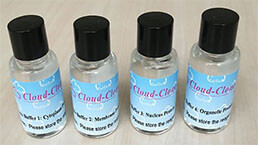 Lysis Buffer Specific for ELISA / CLIA
Lysis Buffer Specific for ELISA / CLIA
-
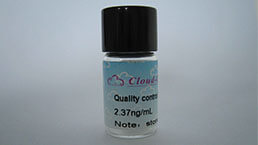 Quality Control of Kit
Quality Control of Kit
-
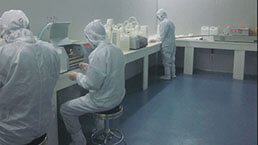 CLIA Kit Customized Service
CLIA Kit Customized Service
-
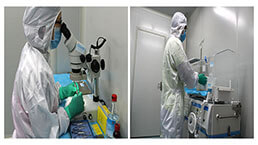 Disease Model Customized Service
Disease Model Customized Service
-
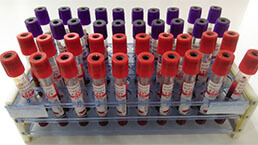 Serums Customized Service
Serums Customized Service
-
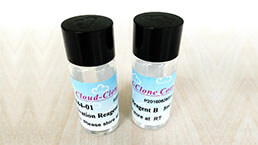 TGFB1 Activation Reagent
TGFB1 Activation Reagent
-
 Real Time PCR Experimental Service
Real Time PCR Experimental Service
-
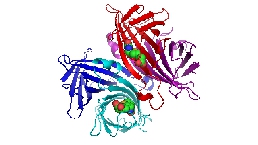 Streptavidin
Streptavidin
-
 Fast blue Protein Stain solution
Fast blue Protein Stain solution
-
 Single-component Reagents of FLIA Kit
Single-component Reagents of FLIA Kit
-
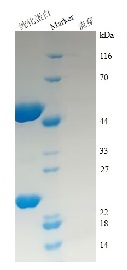 Streptavidin-Agarose Beads
Streptavidin-Agarose Beads
| Magazine | Citations |
| Clinical Hemorheology and Microcirculation | Strict heart rate control attenuates prothrombotic state and platelet activity in patients with non-valvular permanent atrial fibrillation. Pubmed: 2347822 |
| International Journal of Pharma & Bio Sciences | STUDIES ON THE STORAGE OF POOLED PLATELETS IN NON DOP PVC CONTAINERS Ebscohost: Source |
| Journal of Affective Disorders | Bioprofiling of platelets in medicated patients with depression. Pubmed:25451399 |
| Perfusion | Ex vivo simulation of cardiopulmonary bypass with human blood for hemocompatibility testing PubMed: 26243277 |
| Physiol Behav | Differential changes in platelet reactivity induced by acute physical compared to persistent mental stress PubMed: 26192713 |
| J Affect Disord | Bioprofiling of platelets in medicated patients with depression PubMed: 25451399 |
| Turk Kardiyol Dern Ars | Markers of coagulation and fibrinolysis do not detect or predict the presence of left atrial appendage thrombus in patients with atrial fibrillation Pubmed: 32147650 |
| JOURNAL OF FOOD BIOCHEMISTRY | A novel di‐peptide Met‐Glu from collagen hydrolysates inhibits platelet aggregation and thrombus formation via regulation of Gq‐mediated signaling Pubmed: 32662128 |
| Membranes (Basel) | Endogenous Nitric Oxide-Releasing Microgel Coating Prevents Clot Formation on Oxygenator Fibers Exposed to In Vitro Blood Flow Pubmed:35054599 |
| Vaccine | The effect of ChAdOx1 nCov-19 vaccine on arterial thrombosis development and platelet aggregation in female rats Pubmed:35183388 |

